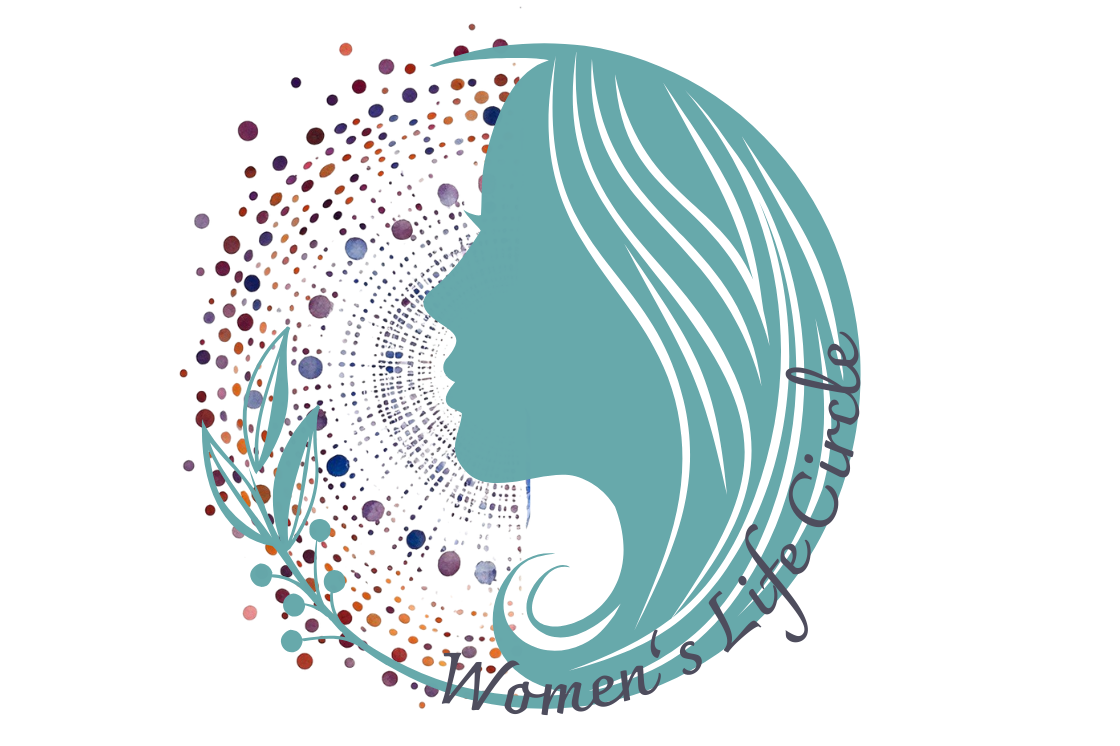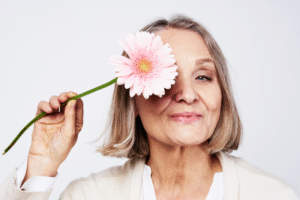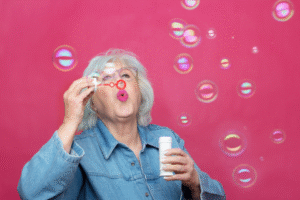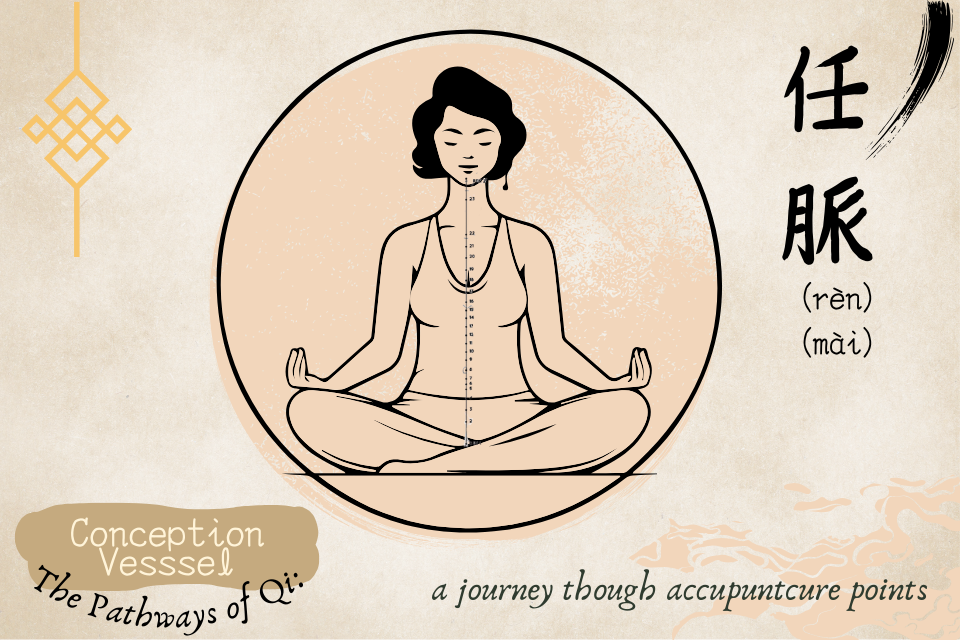The Gateway to Renewal & Balance
Description of the Phase
Menopause is often misunderstood as an ending, but in truth, it is a gateway — a transition into a new stage of balance and wisdom. It marks the close of fertility but opens the possibility of renewal, self-discovery, and a freer relationship with time and energy. For many women, it is a stage that brings both challenges and liberation.
The Science of Menopause
Biology defines menopause as the point when menstruation has ceased for twelve months. This is caused by the natural decline in ovarian function and the reduction of estrogen and progesterone. Yet science now recognizes that menopause is not a sudden event but a process that affects multiple systems in the body.
Hormonal shifts: Estrogen and progesterone decline significantly.
Physical effects: Hot flashes, night sweats, and changes in sleep are common.
Metabolic changes: Weight distribution often shifts toward the abdomen.
Bone and heart health: Lower estrogen impacts bone density and cardiovascular risk.
Ancient Views of Menopause
In many ancient cultures, menopause was not seen as decline but as transformation. While modern medicine often focused on loss, traditional societies often recognized this stage as one of wisdom and spiritual authority.
Ancient Greece: Hippocrates described menopause as a “cooling” of the body, requiring gentler nourishment and balance.
Egypt: Older women often assumed roles as priestesses or advisors.
Andean traditions: Post-menopausal women were seen as elders carrying community wisdom.
China: Menopause was interpreted through Yin-Yang theory as a rebalancing of energies.
The Body in Transition
The body speaks clearly during menopause, often with symptoms that demand attention. Rather than signs of decay, these changes can be reframed as signals that the body is finding a new equilibrium.
Skin and hair: Often drier and thinner, requiring extra care.
Sleep patterns: Disturbed by night sweats or hormonal changes.
Circulation: Hot flashes reflect vascular adjustments.
Metabolism: Energy may feel lower, and weight changes may occur.
Emotional Landscape
The emotional aspect of menopause is deeply personal. For some, it brings freedom from cycles and fertility concerns; for others, it raises feelings of loss. Emotional well-being depends greatly on how this stage is understood and supported.
Empowerment: A sense of liberation from cycles and reproductive duties.
Mood changes: Irritability, anxiety, or sadness can arise.
Redefinition: Many women reimagine their roles, relationships, and identity.
Support: Community and self-care practices reduce emotional strain.
Food and Nourishment
Nutrition plays a vital role in easing menopausal symptoms and supporting long-term health. The right foods help stabilize mood, strengthen bones, and regulate weight.
Calcium and vitamin D support bone health.
Phytoestrogen-rich foods like organic soy and flax help balance hormones.
Omega-3 fatty acids reduce inflammation and support mood.
Reduce caffeine and alcohol, which can worsen hot flashes and sleep issues.
Herbs and Natural Support
Herbal traditions across cultures have long supported women in this transition. Many herbs can ease symptoms and provide natural balance.
Black cohosh for hot flashes and night sweats.
Red clover for phytoestrogen support.
Sage for excessive sweating.
Ashwagandha for stress resilience.
Vitamins and Chinese Herbs
Supplements during menopause are often essential for long-term vitality. Chinese herbal medicine also provides deeply nourishing remedies.
Vitamin D and calcium to prevent osteoporosis.
Magnesium to support sleep and calm the nervous system.
B-complex vitamins to support mood and energy.
In TCM: Dang Gui nourishes blood, He Shou Wu supports vitality, Shan Yao strengthens energy.
Essential Oils and Aromas
Aromatherapy provides gentle relief from stress, insomnia, and hot flashes, while also supporting emotional balance.
Clary sage supports hormonal balance.
Peppermint cools the body during hot flashes.
Lavender promotes relaxation and sleep.
Geranium uplifts mood and balances emotions.
Movement, Meditation and Breath
Menopause is a stage where mindful movement and inner practices become particularly important. They strengthen the body, regulate mood, and calm the nervous system.
Yoga and tai chi to support flexibility and calmness.
Strength training to protect bones and muscles.
Meditation to reduce stress and enhance clarity.
Breathing exercises to manage hot flashes and anxiety.
The Right Environment
The environment plays a crucial role in supporting women through menopause. A balanced lifestyle, with both social engagement and quiet rest, is key to harmony.
Community support reduces feelings of isolation.
Nature provides grounding and renewal.
Restful spaces at home aid in managing stress.
Balanced social life, neither overstimulating nor isolating.
Clothing and Expression
Clothing during menopause can provide both comfort and empowerment. As the body changes, style evolves — not to hide but to embrace a new phase of life.
Breathable fabrics like cotton and linen for comfort.
Layered outfits to adjust easily during hot flashes.
Colors and styles that express confidence and wisdom.
Practical elegance that balances comfort and identity.
Closing Reflection
Menopause is not an ending but a doorway. It is the passage into a new rhythm of life, free from cycles yet rich with wisdom. By embracing this stage as renewal rather than loss, women can find balance, vitality, and deeper self-awareness.
References
North American Menopause Society. (2023). Understanding Menopause.
Hippocrates. On the Nature of Women. Classical Greek texts on women’s health.
Chinese Medicine Classics: Huangdi Neijing (Yellow Emperor’s Inner Canon).
Panagiota Sophia Vlahou
Certified Beekeeper | Specializing in Traditional Beekeeping & Natural Wellness Methods
Trained in Traditional Acupuncture – Academy of Traditional & Chinese Medicine
Member of the Beekeepers’ Association of Attica-Greece
Disclaimer: This article is for educational and informational purposes only. It is not intended to diagnose, treat, cure, or prevent any disease, and it does not substitute professional medical advice. Always consult a qualified healthcare professional before making any changes to your diet, lifestyle, or health practices.







